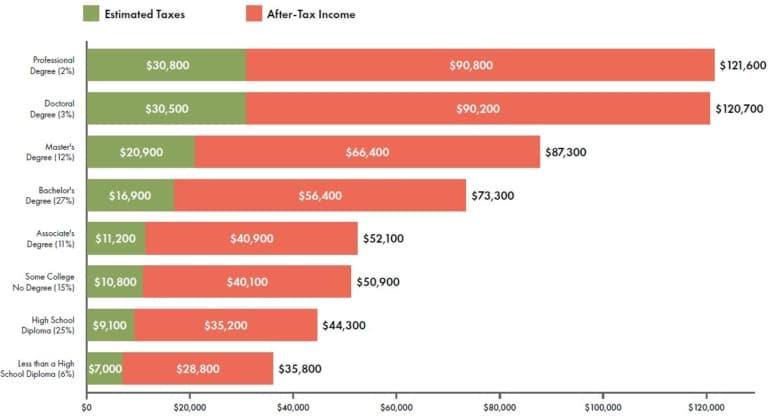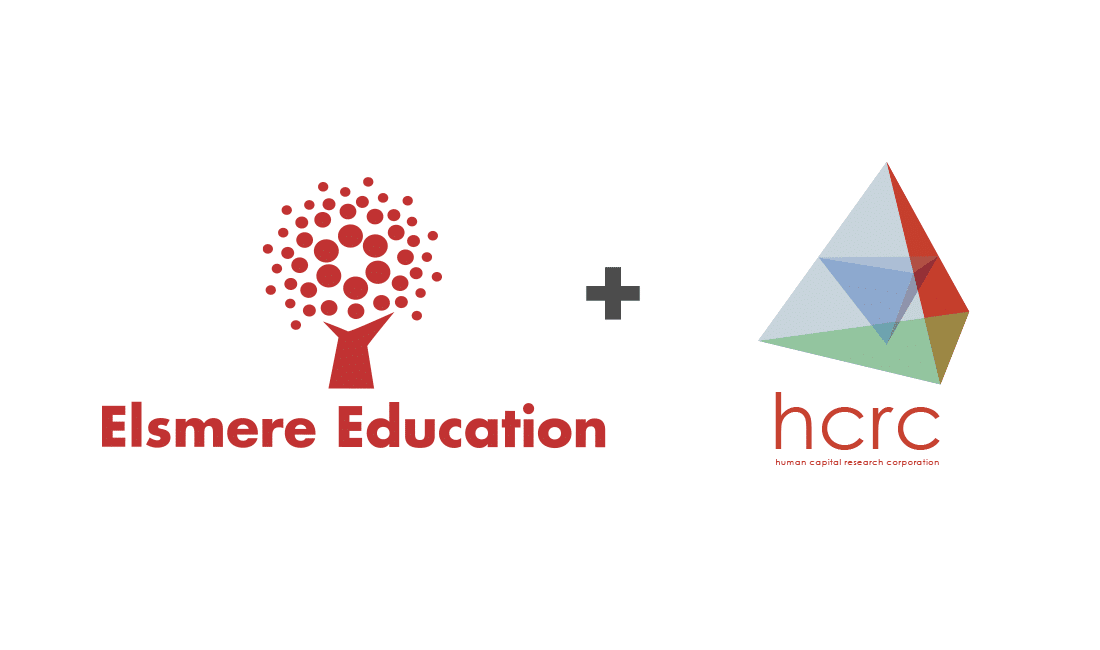With headlines about declining enrollment, rising tuition costs, and demographic shifts, the future of higher education seems uncertain. One of the biggest questions on everyone’s mind: is a college degree still worth it?
This article explores the value of higher education by summarizing current research on earnings and employment disparities at different education levels, focusing on both graduate and undergraduate degrees.
Higher Education Pays Off: Earning Power and Job Security
Many organizations publish good data surrounding the value of higher education. Chief among them – the Bureau of Labor Statistics – publishes an annual report called Education Pays, which details the median usual weekly earnings and unemployment rate at varying degrees of educational attainment. Their data show an almost direct trend between higher levels of education and higher earnings, as well as lower unemployment, as shown in the chart below1:

The BLS provides this data by compiling the results from various, consistent surveys they do. Other sources echo these trends.
Take-Home Pay Increases with Education Level

As shown, though higher earners pay more in taxes, the take-home pay increases with education level.
Real-World Salary Trends by Education Level
| Education Level Mentioned | # of Postings (2023) | Median Advertised Salary |
| High School/GED | 9,101,462 | $41,664 |
| Associate's Degree | 3,195,909 | $58,304 |
| Bachelor's Degree | 9,970,653 | $85,440 |
| Master's Degree | 3,060,908 | $100,288 |
| Doctorate/Professional Degree | 1,112,019 | $115,136 |
The median advertised salary in these job postings increased significantly as the level of education increased.
Various sources and our own research support the claim that a pathway to higher income is higher education. This is not without exception, and the cited research focuses on these trends at a very high level. Universities should consider the short-term as well in constructing degrees; if the price point is high, the student will want an immediate return on investment, lest they be saddled with loans for years to come.
Aligning Education with Market Demands
The value of higher education remains strong, with substantial evidence indicating that increased educational attainment leads to higher earnings and lower unemployment. However, in today’s complex educational environment, universities must strategically align program offerings with market demands and career outcomes to ensure students receive a meaningful return on their investment.
To optimize your institution’s program pricing and alignment with job market trends, leverage Elsmere Education’s expert solutions. Contact us today to explore how our pricing analysis and strategic market insights can enhance your program’s value and appeal.
Sources
2 Ma, Jennifer and Matea Pender. Education Pays 2023. Accessed July 2024. https://research.collegeboard.org/media/pdf/education-pays-2023.pdf.
3 Lightcast, Job Postings Table, 2024.







